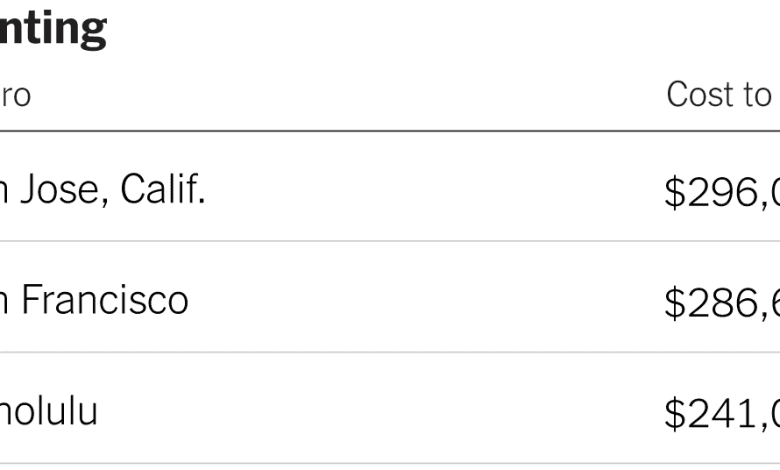The Gen-Z Advantage in Housing

Homeownership has been a touchy subject for Gen Z, as the generation compares its housing fate with that of the millennials who came before them. But have rising housing costs really been harder on Gen Z as its members navigate their 20s? A recent study by RentCafe sheds some light on each generation’s housing burden.
Researchers measured the average housing costs incurred by Gen Z-ers and millennials between the ages of 22 to 30, including rent, mortgage, insurance and utilities, with dollar amounts adjusted for inflation. Down payments were not included. Projections through age 30 were made for Gen Z, as the oldest members of that generation are not yet 30.
On average, the study found, Gen Z-ers — born between 1994 and 2000 — will spend about $145,000 on rent by their 30th birthdays, while millennials — born between 1981 and 1996 — spent $127,000 during the same stage of life. But because Gen Z-ers earn more, the share of income required (27 percent) is roughly equal for both generations.
Owning a home would cost Gen Z-ers about $165,000 during the eight-year period studied, while the millennial cost is greater, about $172,000. And because they earn less on average, millennial owners by age 30 forked over 36 percent of their income to housing, while Gen Z owners can look forward to devoting only about 30 percent of their income.
Of course, much of these costs depend on location. San Jose, Calif., in the heart of Silicon Valley, was found to be most expensive for both generations to buy and rent. Large East and West Coast cities were also among the most expensive. But the choice is simple in these pricey markets: rent. In San Jose, renting would save Gen Z-ers $170,000 over eight years, compared with buying.
For weekly email updates on residential real estate news, sign up here.
